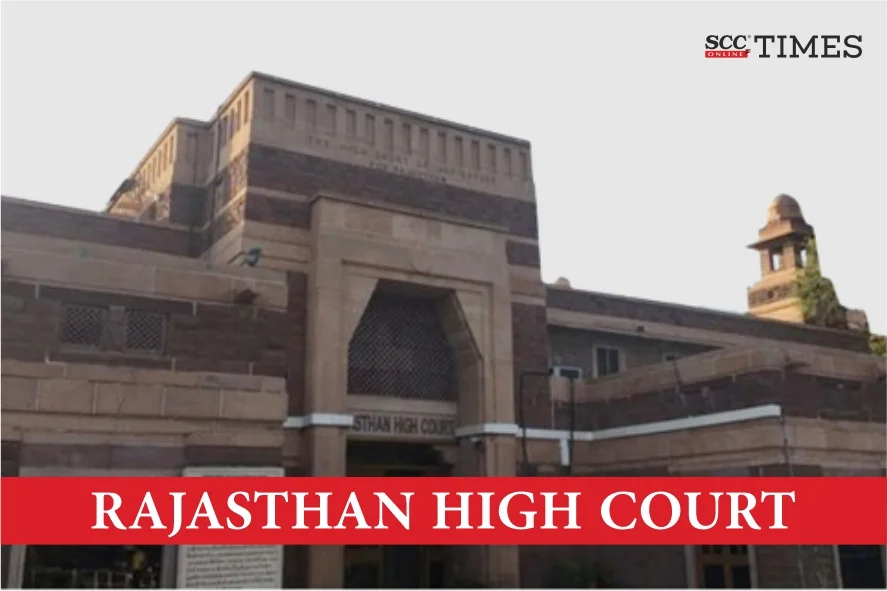Rajasthan High Court: In a petition filed under Section 528 of the Bharatiya Nagarik Suraksha Sanhita, 2023 (BNSS) seeking fair, impartial, and effective investigation in FIR registered for offences under Section 420 and 120-B of the Penal Code, 1860 (IPC), a single-judge bench of Arun Monga, J., overruled the objection by the Registry and held that since the FIR was registered before BNSS came into force, therefore, the proceedings should follow CrPC.
“What has to be been seen simply is the date of registration of the FIR and the law as applicable as on the date of such registration.”
In the instant matter a FIR was registered on 02-02-2024 for offences under Section 420 and 120-B IPC related to a dispute over agricultural land purchased by the petitioner’s late father in 1961, before the BNSS came into force on 01-07-2024. The petitioner initially filed a petition under Section 482 of the Criminal Procedure Code, 1973 (CrPC) seeking a fair, impartial, and effective investigation in the FIR, however, the same was later converted to Section 528 of BNSS upon an objection raised by the Registry. The petition claimed that the investigating officer has not concluded the investigation or arrested the accused. The main issue in hand is whether the petition should be filed under the old Section 482 CrPC or the new Section 528 BNSS.
The Court stated that “trite it may sound, but settled position is that, the moment an FIR is registered under section 154 of the CrPC, criminal investigative/administrative machinery is set in motion under Chapter XII thereof.” The Court stated that if an FIR is registered prior to 01-07-2023 under the CrPC., the same would amount to a pending enquiry/investigation within the meaning of section 531(2)(a) of BNSS and therefore the entire subsequent investigation procedure and even the trial procedure qua such an FIR shall then be governed by CrPC and not BNSS.
The Court noted that Section 531(2)(a) mandates that any pending appeal, application, trial, inquiry, or investigation before the BNSS came into force will be disposed of under the CrPC. The Court stated that although the procedural laws can be applied retrospectively, Section 531(2)(a) clearly mandates using the old code for pending matters. The Court held that since the FIR was registered before BNSS came into force, therefore, the proceedings should follow CrPC.
The Court noted that the repeal of the old code includes a transitional period to avoid legal uncertainties and the savings clause under Section 531 BNSS ensures that the transition from old to new law does not disrupt ongoing proceedings. It was noted that the savings clause protects ongoing legal proceedings and maintains the integrity of the judicial process.
The Court noted on merits the petitioner’s dissatisfaction with the investigation progress and manner. The Court noted that the investigation is still underway, and the investigating officer is acting cautiously due to ongoing civil litigation. The Court further noted that the petitioner should have first sought other legal remedies, such as approaching a superior police officer under Section 36 CrPC or a Magistrate under Section 156(3) CrPC, before approaching the Court.
The Court overruled the objection by the Registry and held that the petition be treated as one filed under Section 482 CrPC. The Court disposed of the petition and any other pending applications with liberty to the petitioner to approach the appropriate forum for redressal.
[Krishan Joshi v. State of Rajasthan, 2024 SCC OnLine Raj 2042, Decided on 09-07-2024]
Advocates who appeared in this case :
Ms. Swati Shekhar, Counsel for the Petitioner
Mr. Mukhtyar Khan, PP, Counsel for the Respondents









